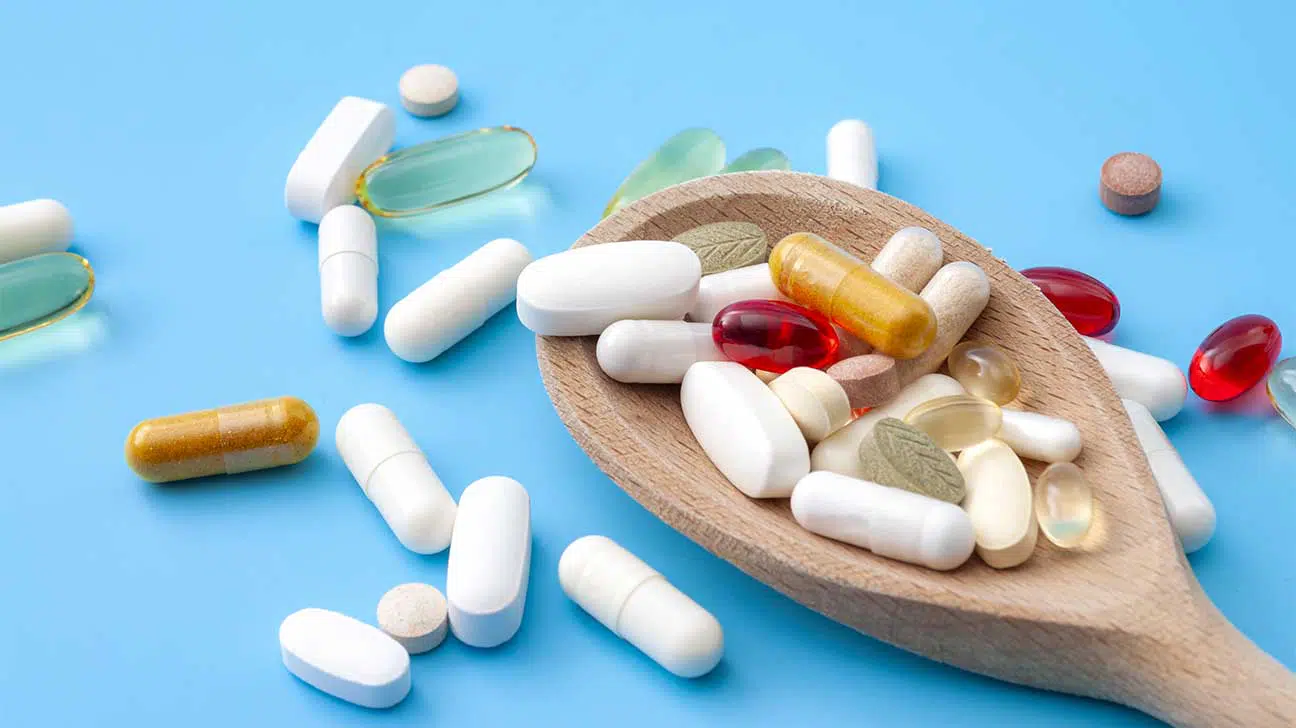
Opioids and benzodiazepines are two types of depressants drugs that are sometimes prescribed together, for pain and anxiety. They can also be misused.
Signs of misuse include:
- taking higher doses than prescribed
- taking the medications more often than prescribed
- crushing and snorting tablets
- taking someone else’s prescription medication
Taking opioids with benzodiazepines can be dangerous. This significantly increases the risk of experiencing drug overdose, which—in severe cases—can be fatal.
Find out more about what happens when you mix drugs
What Happens When You Mix Opioids And Benzodiazepines?
Both benzodiazepines and opioid drugs depress the central nervous system, which can slow a person’s breathing, heart rate, and blood pressure.
Mixing the two drugs can have compounding effects, which—in high doses, or instances of drug misuse—can dangerously suppress a person’s breathing and cause sedation.
Side effects of taking benzodiazepines with opioids can include:
- extreme sleepiness
- dizziness
- slowed or difficult breathing
- nausea and vomiting
- impaired coordination
- coma
The types of side effects a person experiences, and the severity, can vary according to:
- the amount taken
- the types of drugs used
- personal factors related to health and substance use history
Dangers Of Mixing Opioids And Benzodiazepines
Taking benzodiazepines and opioids together significantly increases the risk of respiratory depression, drug overdose, and death.
According to research:
- People who fill a prescription for both types of drugs have a nearly 15-fold risk of experiencing fatal drug overdose than people not prescribed either drug.
- In 2019, nearly 16 percent of U.S. opioid overdose deaths also involved a benzodiazepine.
- People who take both drugs are more likely to be admitted into a hospital and are at higher risk for visiting the emergency department.
In 2016, the U.S. Centers for Disease Control and Prevention (CDC) issued new guidelines for opioids, warning healthcare professionals to avoid prescribing benzodiazepines with opioids when possible.
Taken alone, benzodiazepines are rarely fatal. Taking benzodiazepines with an opioid magnifies their depressant effects, which can have life-threatening consequences.
Signs Of Opioid And Benzodiazepine Overdose
Overdose from taking benzodiazepines with opioids can be fatal. If someone is experiencing serious symptoms after taking both drugs, call 911 right away.
Signs and symptoms of overdose include:
- unusual drowsiness
- extreme dizziness
- slow or no breathing
- difficulty breathing
- low blood pressure
- inability to talk
- cold, clammy skin
- slow heart rate
- unconsciousness
Overdose is treatable with prompt medical attention. Acute hospitalization for further monitoring may be recommended, in order to ensure proper stabilization.
Commonly Abused Opioid And Benzodiazepine Combinations
Benzodiazepines and opioids are commonly misused together, despite the serious health risks this can pose.
Common opioid and benzo combinations include:
- Heroin and benzodiazepines
- Heroin and Xanax
- Heroin and Ativan
- Heroin and Klonopin
- Suboxone and Xanax
- Fentanyl and Xanax
- Codeine and Xanax
- Methadone and Benzodiazepines
- Methadone and Xanax
- Methadone and Klonopin
Taking these drugs in any way other than recommended by a doctor can increase the risk of drug dependence, addiction, and overdose.
This includes crushing and snorting drugs, injecting drugs, mixing them with alcohol, or taking doses more often or in higher doses than prescribed.
Finding Treatment For Polydrug Abuse And Addiction
Mixing benzodiazepines with opioids can be a sign of drug abuse and addiction. Seeking treatment for polydrug abuse, or the misuse of multiple drugs, can be life-saving.
Treatment programs for drug use involving multiple drugs may offer:
- medical detoxification
- medication for opioid use disorder
- behavioral therapy
- individual and group counseling
- mental health treatment
- relapse prevention
- aftercare support
For more information, call our helpline today to find an addiction treatment program that’s right for you.
Addiction Resource aims to provide only the most current, accurate information in regards to addiction and addiction treatment, which means we only reference the most credible sources available.
These include peer-reviewed journals, government entities and academic institutions, and leaders in addiction healthcare and advocacy. Learn more about how we safeguard our content by viewing our editorial policy.
- U.S. Food and Drug Administration (FDA)—FDA Safety Communication: FDA warns about serious risks and death when combining opioid pain or cough medicines with benzodiazepines; requires its strongest warning
https://www.fda.gov/drugs/drug-safety-and-availability/fda-drug-safety-communication-fda-warns-about-serious-risks-and-death-when-combining-opioid-pain-or - U.S. National Institute on Drug Abuse (NIDA)—Benzodiazepines and Opioids
https://www.drugabuse.gov/drug-topics/opioids/benzodiazepines-opioids - U.S. National Institute on Drug Abuse (NIDA)—Prescription CNS Depressants DrugFacts
https://www.drugabuse.gov/publications/drugfacts/prescription-cns-depressants - U.S. National Library of Medicine—Benzodiazepine use, misuse, and abuse: A review
https://www.ncbi.nlm.nih.gov/pmc/articles/PMC6007645/


